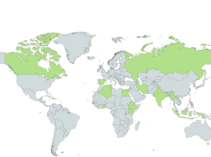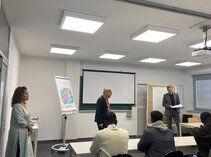News
ARCANE Project Kick Off
We’re excited to announce the successful kick-off of our project in Paris, where we gathered with partners to plan the future of hospital network modeling in France and Germany. This initiative aims to enhance healthcare delivery across borders through advanced data-driven models.
More Info on ARCANE Kick Off Meeting – Arcane project
Organised by members of the QUPI Team from Freiburg.
The IIK video series
______________________________________________________________________________________________________________________________

Medical Director:
Prof. Dr. med. Philipp Henneke
philipp.henneke@uniklinik-freiburg.de
Breisacher Straße 115 B
79106 Freiburg





